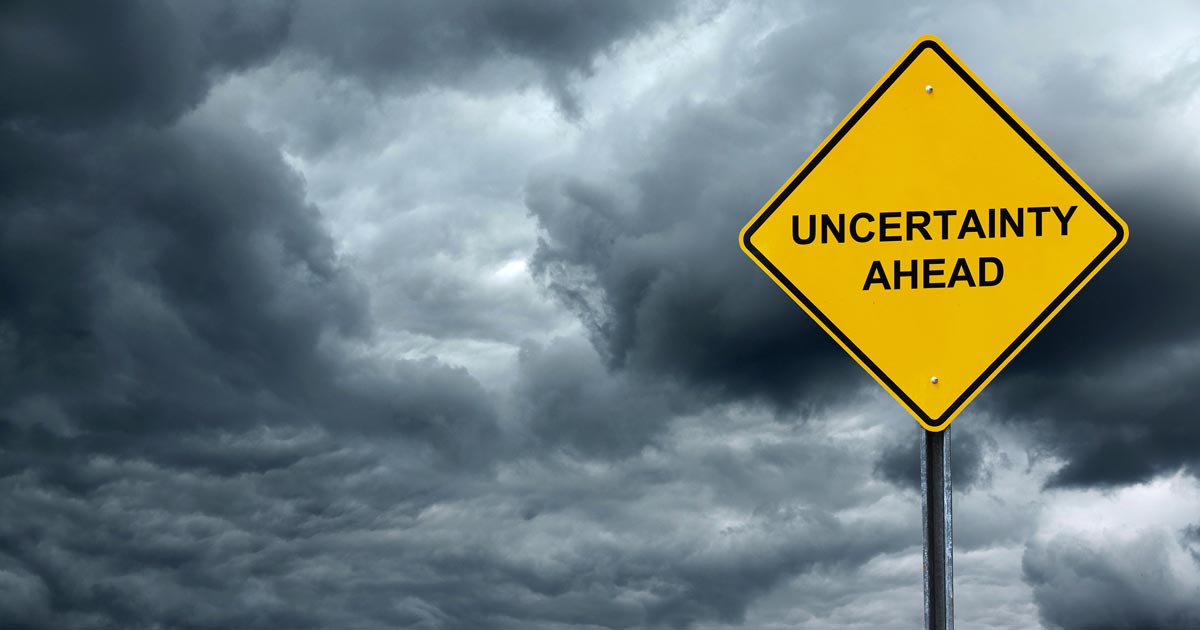Strategies for Dealing with Anxiety, Part 6
- By Jon Hagen
- •
- 01 Aug, 2020
Surrendering the Unthinkable to God

Surrender the unthinkable to God. Really though, this should be stated in the present tense: surrendering the unthinkable to God. The ongoing surrendering of our fears to God is my third and, in this series, final strategy for dealing with anxiety.
Right now, and again tomorrow, and the day after that, and the day after that, there is in your near or distant future something you don’t want to see happen. It feels inevitable. Your mind is consumed with it. You mentally rehearse alternate scenarios that would create a more positive outcome. And yet the dread prospect is so powerful you cannot be rid of it.
Queen Esther is one example of surrendering the unthinkable to God. Not only was Esther’s life in imminent danger from Haman’s schemes, but her entire people group was at risk of genocide. Esther needed to speak with the king and plead her and her people’s case. But state law dictated that if she invited herself into the king’s court, rather than the king issuing the invitation, she risked forfeiting her life. The future lives of thousands appeared to all hang on the mood of the king. Anxiety, anyone?
With stakes at the extremes, Esther tells her uncle, “Go, gather all the Jews to be found in Susa, and hold a fast on my behalf, and do not eat or drink for three days, night or day. I and my young women will also fast as you do. Then I will go to the king, though it is against the law, and if I perish, I perish” (Esther 4:16).
“If I perish, I perish.” I’m calling that surrender. Esther’s casting of herself onto God’s providence might give a quick reader the impression that surrender of one’s anxieties is a passive action. As if you get backed into a corner, wave a white flag, and give up. But I don’t think it’s like that. Something more is going on.
Let’s take the example of Daniel’s cohorts and the threat of death they faced at the hands of King Nebuchadnezzar. They could bow down to the king’s gold statue and live, or they could refuse and be immolated. The pagan king was burning with anger and his threat was real. Shadrach, Meshach, and Abednego could listen to their fears, betray their God, and escape the fiery furnace and death by committing idolatry. That kind of pressure is sure to produce heightened anxiety. Yet the trio surrender their future to God—not passively, but actively in faith.
“O Nebuchadnezzar, we have no need to answer you in this matter. If this be so, our God whom we serve is able to deliver us from the burning fiery furnace, and he will deliver us out of your hand, O king. But if not, be it known to you, O king, that we will not serve your gods or worship the golden image that you have set up” (Daniel 3:16-18).
Based on Hebrews 11, I say these men actively, not passively, surrendered their future in faith that their God was able to deliver them. “And what more shall I say? For time would fail me to tell of Gideon, Barak, Samson, Jephthah, of David and Samuel and the prophets—who through faith conquered kingdoms, enforced justice, obtained promises, stopped the mouth of lions, quenched the power of fire” (Hebrews 11:32-34).
We love stories like Esther’s and Daniel’s band of brothers. High drama, and then, at the last minute, faith’s reward is deliverance. Your nightmare, your unthinkable, starts to unfold but does not happen. It gives us hope that we, too, can face our unspeakable nightmares and find out it was little more than a bad dream.
However, to be honest with the Scriptures and our lived experience, we know that sometimes the unspeakable becomes our reality. Hebrews 11 goes on to admit this. “Others suffered mocking and flogging, and even chains and imprisonment. They were stoned, they were sawn in two, they were killed with the sword. They went about in skins of sheep and goats, destitute, afflicted mistreated—of whom the world was not worthy—wandering about in deserts and mountains, and in dens and caves of the earth” (vv. 36-38).
True, we’re more likely to have a splitting headache than face the prospect of being sawn in two. But we have plenty of other reasons for being anxious—more or less so. The economy might tank. You might lose your business. Or lose your job. Your spouse might leave you. Or you might never have a spouse. Your child’s future might be permanently altered through no fault of their own. Or you might not ever be able to have a child. Your political nightmare might come true. Or the injustice you suffered might never be made right. You think about these things. A lot.
Anxiety then comes in the voice of Nebuchadnezzar and throws his ancient taunt in your ear, “You will be thrown into the blazing furnace. And then what god will be able to rescue you from my power?” (Daniel 3:15). How would you answer Nebuchadnezzar’s question? But really, how are you answering that question now? Do you know your God well enough that, under such pressure, you are able to surrender the future into his hands?
The God who was with Daniel’s friends in the fire and delivered them is the same God David invokes when he sings, “Even though I walk through the valley of the shadow of death, I will fear no evil, for you are with me” (Psalm 23:4). Some commentators believe that this “shadow of death” is a reference to not only our mortality but also to any time of uncertainty, any season of darkness in which you cannot foresee what’s coming next. A season of anxiety, for sure.
As for David’s reference to the valley, there is reason to believe David is alluding to the Kidron valley which leads from Jerusalem to the Garden of Gethsemane. In comparing David’s time of distress to Jesus’ nightmare, Glen Scrivener writes, “Where David crossed the Kidron and then passed through the garden of Gethsemane, Christ walk through the valley then stopped at the garden. Christ could have kept going to safety, just as David had. He could have used this ancient escape route. Instead he pauses, prays and accepts the cup of suffering from his Father (Matthew 26:36-46).”
Jesus echoes Esther and the Hebrew exiles when he prays, “My Father, if it is possible, let this cup pass from me. Yet not as I will, but as you will” (Matthew 26:39). This is the surrender of Jesus. Voluntarily. Completely. And into the hands of his eternal Father.
Scrivener continues, “Christ chose to walk our path and to do so at our head. Like a needle piercing the black shroud of death he passes through, bearing the brunt of its terrible curse. We trail behind him like the thread, pulled through in union with our suffering King. It’s in this spirit that we pray Psalm 23.
“Yet we do not pray Psalm 23 alone. First of all Christ prays it—he walks the path and comes through into feasting, victory, and joy. But he does it as our Forerunner. If we belong to Jesus, his victory is our victory” (Glen Scrivener, Reading Between the Lines, Vol. 1, p. 315).
Jesus’ victory is our victory. If not today, then tomorrow. And if not tomorrow, then surely one day. Yes, Lord, the Day all your promises are fulfilled. Until then, in faith we can surrender daily our heart’s desires to him. We believe he will “pull us through in union with him” regardless of the hardships we face.
“For none of us lives to himself, and none of us dies to himself. For if we live, we live to the Lord, and if we die, we die to the Lord. So then, whether we live or whether we die, we are the Lord’s. For to this end Christ died and lived again, that he might be Lord both of the dead and of the living” (Romans 14:7-9).
Because nothing can separate us from the love of God, not even the unspeakable.








